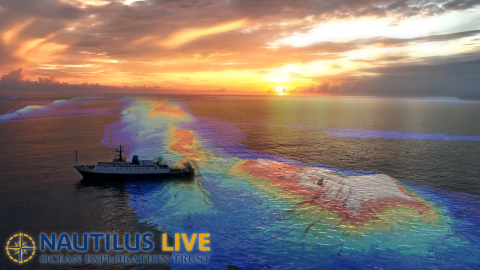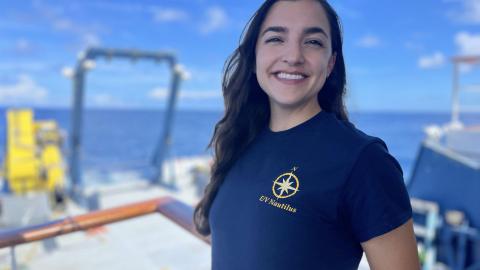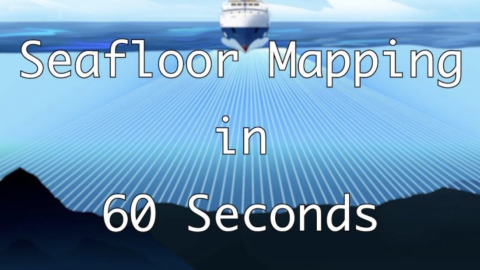Meet Ocean Explorer Alec Ramirez
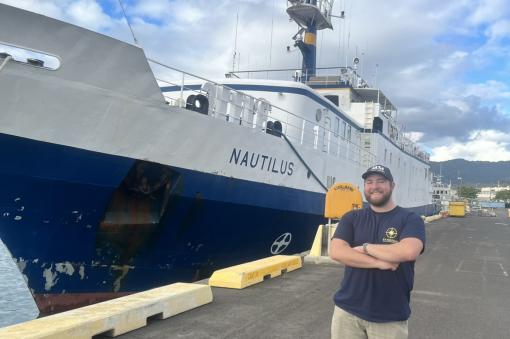
OET proudly welcomes Alec Ramirez to the Corps of Exploration as part of the Science & Engineering Internship Program. This internship program supports community college, undergraduate, and graduate students in building professional workforce experience and exploring STEM-related careers that connect to research themes like robotics, ocean science, education, and exploration. Alec is joining E/V Nautilus for our NA158 expedition as a seafloor mapping intern.
We sat with Alec to learn more about his experience at sea and the path that led him to Nautilus.
Can you tell us a little about your background? What influenced you as a child?
I grew up in Santa Cruz, California. I spent most of my time in and around the ocean surfing, fishing, and diving. As an elementary school student, I had the opportunity to survey tidepools with a group from UC Santa Cruz as a class field trip. This was the point where I was introduced to ocean science as a way to quantify and study the ocean environment. Living so close to the Monterey Bay Aquarium, I also had opportunities to go and see the exhibits there and learn more about the kelp forest, deep sea, and pelagic environments. At the aquarium, there is an interactive area set up to model a deep sea exploration control center. I spent a lot of time interacting with it as a kid, and it looks almost exactly like the VAN here on Nautilus. Another huge influence from my childhood was the Blue Planet documentary series and other ocean documentaries on television. My close physical proximity to the ocean, coupled with media and education, set my course to be obsessed with all things marine.
When you were a kid, what did you want to be when you grew up?
When I was very young, I wanted to be a scuba diver. I didn’t want to be a scuba instructor or a scientist, or even an underwater photographer; I just wanted to be a scuba diver. As I got older, I realized that a marine biologist might be a more interesting career choice than whatever I thought it meant to be a scuba diver. I think this was because I spent so much time watching nature documentaries that I just wanted to immerse myself in the ocean to see all the organisms and habitats for myself. It went back and forth between marine biologist and roboticist a few times in my high school days, but in the end, I entered college as a marine biologist and quickly switched to geographer/oceanographer, and I haven’t looked back since.
What would you consider to be your greatest challenge entering this field?
I would say there are two challenges that I had to overcome to get into the position I’m in right now. The first major challenge was realizing what the reality of being a research scientist means. Unfortunately, no one was going to pay me to go have fun on a boat for hours a day without any greater accountability or purpose. I had to find out what I really enjoyed in order to make sure I could have my fun but still be contributing to the field in a meaningful – and fundable – way. I found my niche in ocean science as a mapper, both working with the seafloor and sea surface. Finding my passion for ocean science was difficult at first. Entering college as a marine biologist, I had a hard time relating to the small-scale biological concepts. This led me to look into geography, which had me looking at problems at larger scales that resonated more with my actual interests. The second major challenge I faced was actually putting my training to work. When studying something so specific, it can be hard to find an employer who is looking to hire someone with that skill set. Because these opportunities are hard to come by, it was important for me to constantly look and apply whenever I found something. Persistence is really the key to success in this field.
Do you have any advice for someone looking to follow a similar path?
My advice for someone looking to get into a career in ocean science is to find what subfield you're really passionate about and go from there. When you’re studying or working with a topic that genuinely fascinates you, the adage that, “if you love what you do, you’ll never work a day in your life” holds very true. Let your curiosity motivate you to engage with new topics and create. It was difficult to get to the position I’m in now, but all the adversity I overcame on the way was overshadowed by how much fun I had learning about the ocean and meeting inspiring people.
What's next for your ocean studies and career?
I’m currently applying for master's and Ph.D. programs in ocean and natural sciences to start in the fall of 2024. I hope to eventually earn my Ph.D. and teach ocean science at a community college level in my home state of California.
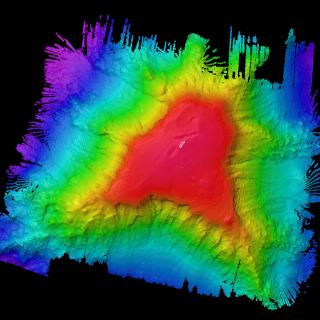
Jarvis Island Mapping
Traveling to the southern hemisphere, this expedition takes the team to Jarvis Island, one of the most poorly mapped areas under US jurisdiction, where our high-resolution bathymetric seafloor mapping will add to the world’s baseline knowledge of this poorly studied part of the Pacific Remote Islands Marine National Monument (PRIMNM).
